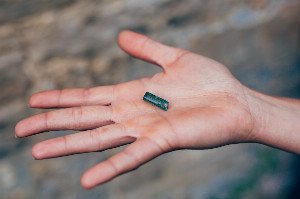Ferdian Rinaldi, Diliya Mariam Rinjani, Nurfadila, Rini Rashifah
Legal Policy on Waste Management in Tarajusari Village, Bandung Regency
Introduction
Legal policy on waste management in tarajusari village, bandung regency. Tarajusari Village waste management: Legal policy, BSF maggots & community cleanups offer sustainable solutions. Addresses pollution, boosts awareness & economic empowerment.
Abstract
The village of Tarajusari faces complex problems, including pollution of the Citalugtug River due to waste accumulation, low productive utilization of organic waste, and limited land for waste management by the government through the design of a number of policies. The Community Service Program (PKM) of Langlangbuana University employs a participatory and educational approach to address these issues through four main activities. The implementation methods include educational flagship activities and the distribution of Black Soldier Fly (BSF) maggot larvae to three RW units in Dusun 1 through practical training and technology transfer in bioconversion, as well as observing the limitations of waste management land through documentation and interviews with residents. The solutions implemented include designing appropriate technology policies for Black Soldier Fly (BSF) maggot cultivation to convert organic waste into economically valuable products, community-based river cleanup efforts to address environmental pollution, and systematic documentation for advocacy to secure land for a waste management facility from the local government. The program's impacts include increased environmental awareness among the community, strengthened social bonds through community-based cleanup efforts, transfer of bioconversion technology skills to 10 participants, and economic empowerment through the reduction of 20-30 kg of organic waste per RW per month in the two participating RWs. The program's sustainability is supported by community commitment, collaboration with the Environmental Agency, and a continuous consultation system through contact with the PKM team.
Review
This paper addresses a highly pertinent and critical issue concerning waste management in Tarajusari Village, highlighting the severe environmental degradation of the Citalugtug River and the challenges of limited land and underutilized organic waste. The abstract effectively outlines a multi-pronged Community Service Program (PKM) approach, emphasizing community participation and educational initiatives to tackle these complex problems. The identification of specific issues like river pollution, lack of productive organic waste utilization, and land scarcity sets a clear context for the interventions. However, a significant discrepancy arises between the paper's title, "Legal Policy on Waste Management," and the abstract's predominantly operational and practical focus. While "designing appropriate technology policies" and "advocacy to secure land" are mentioned, the core of the described activities appears to be a practical implementation of solutions rather than an in-depth analysis or formulation of legal policies, which the title strongly suggests. Clarifying this focus would greatly enhance the paper's coherence. The methodology adopted by the Langlangbuana University PKM team is commendable for its participatory and educational design. The integration of Black Soldier Fly (BSF) maggot cultivation as a bioconversion technology for organic waste is an innovative and sustainable solution, offering both environmental benefits and potential economic empowerment. The detailed practical training and technology transfer for BSF, alongside community-based river cleanups, demonstrate a holistic approach to waste management and environmental stewardship. The inclusion of systematic documentation and interviews for land advocacy also indicates a forward-thinking strategy for long-term infrastructural needs. However, the abstract could benefit from more specific details regarding the "four main activities" and a clearer definition of what constitutes the "appropriate technology policies" for BSF cultivation – are these formal legislative instruments, local regulations, or community-level guidelines? The program's stated impacts—increased environmental awareness, strengthened social bonds, skills transfer to 10 participants, and economic empowerment through organic waste reduction—are positive outcomes that underscore the value of community-based interventions. The reduction of 20-30 kg of organic waste per RW per month, while a good start, would benefit from being contextualized within the overall waste generation of the village to gauge its broader significance. The sustainability plan, supported by community commitment, collaboration with the Environmental Agency, and a continuous consultation system, is a robust framework. To strengthen this paper as a journal contribution, it is recommended to either align the title more closely with the operational aspects of the PKM program or, if the "Legal Policy" element is central, to elaborate significantly within the abstract on the nature, scope, and impact of the legal and policy frameworks being analyzed or proposed. Further quantitative data on the total waste stream and a more detailed breakdown of the 'policies' being designed would also enhance the paper's scholarly contribution.
Full Text
You need to be logged in to view the full text and Download file of this article - Legal Policy on Waste Management in Tarajusari Village, Bandung Regency from Jurnal Pengabdian Tri Bhakti .
Login to View Full Text And DownloadComments
You need to be logged in to post a comment.
Top Blogs by Rating
The Healing Power of "Ahhh": M...
By Sciaria
The Evolution of Knowledge in...
By Sciaria
The Invisible Load: Unveiling...
By Sciaria
Favorite Blog
Beyond Repair Shops: Unlocking...
By Sciaria
The Elusive Self: Is Authentic...
By Sciaria
The Collective Gasp: Why Live...
By Sciaria





